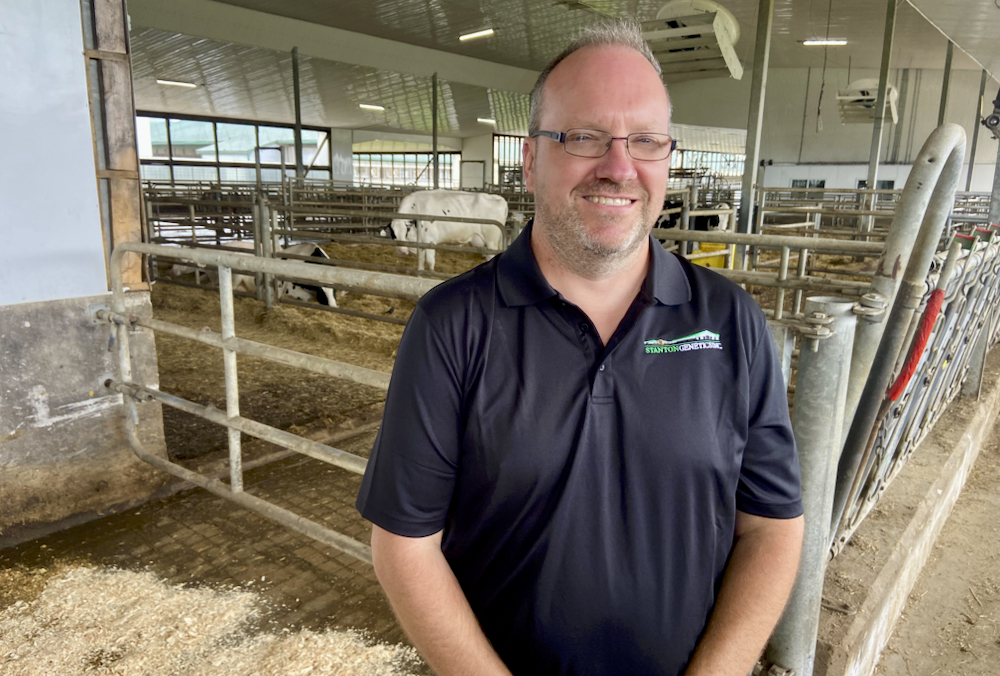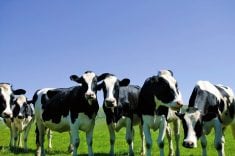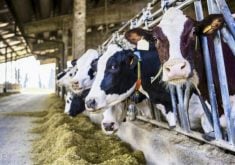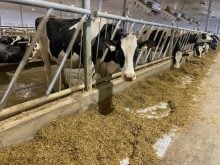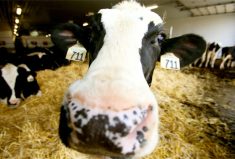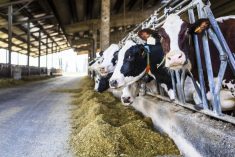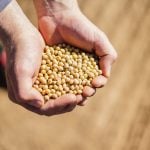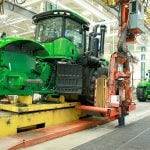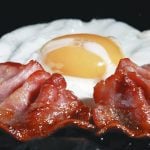New service providers and technology allow some large dairy farmers to sell genetics from their own bulls.
Stanton Farms, one of Ontario’s largest dairy farms, now sells its bull semen directly to farmers. The Stanton family has a tradition of marketing cattle to other farmers. It has purchased some of the top-performing cows in the world and brought them to Ontario, but selling semen is new.
Why it matters: More selection for farmers will mean more choices in dairy genetics and service providers.
Read Also
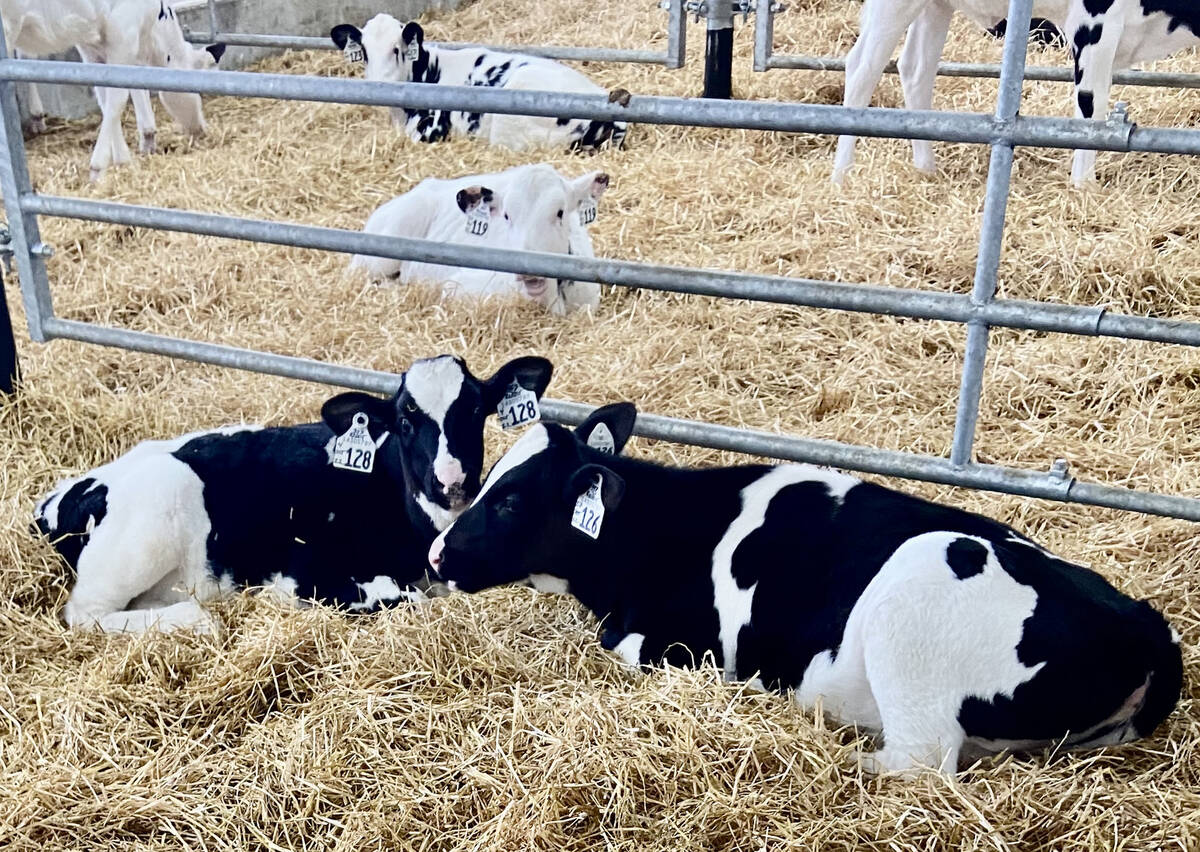
Back to the drawing board for sexed semen fertility ratings
Lactanet, the national genetic evaluation and dairy data provider, goes back to the drawing board with its sexed semen fertility rating index prototype.
Several changes in the industry have allowed farms like Stanton, located outside of Ilderton, Ont., to sell semen directly to farmers.
The first is development of genomic testing, so anyone can test the hair of a bovine and understand its genetic potential. Previously, genetics organizations would buy hundreds of bulls and house them until they knew their genetic potential based on the results of their offspring.
Genomics resulted in the creation of numerous small companies in the 2000s bent on finding their niche in global dairy genetics markets.
However, the market weeded out most of those companies as they lacked the scale, capital and access to top females that the largest companies began to buy.
Now, after another decade of development, large farms that own high-genomic females are finding their niche.
“We can have that information at a month of age so we can know who we think is going to be an elite sire that’s going to fit our breeding goals,” says Jeff Stanton, who runs Stanton Farms with his siblings and parents.
Another factor is development of independent semen collection and bull housing businesses like DMV GenetiQ Services near Drummondville, Que. DMV was started by Jonathan Lehouiller, a veterinarian who was providing semen collection services for beef farmers. Requests from dairy farmers led him to start collecting from dairy bulls as well.
DMV houses Stanton’s bulls and those of other farms that are developing their own semen sales, including Blondin Sires.
“They do an excellent job and we just kind of discovered them about the time we were looking for them and have a great relationship with them,” Stanton said during a recent open house at their farm that included a showcase of daughters of their bulls.
Visitors also toured the large dairy barns for cows and heifers and the biogas digester system that creates electricity and is the first on-farm biodigester to put scrubbed methane into the natural gas pipeline system. The farm milks about 1,000 cows.
Ferme Blondin, owned by Simon Lalande and his partner Kim Côte, is known for its significant impact in the dairy show ring over the past decade. It was named Premier Exhibitor at the Royal Agricultural Winter Fair’s national Holstein show in Toronto.
The farm milks about 250 cows in a modern free-stall barn. It also sells about 600 fresh cows a year, mostly to get enough recipients for its extensive embryo flushing program.
Ferme Blondin could not find bulls with solid cow families to use for embryo flushes on its best cows, says Dann Brady, one of the founders of Blondin Sires. They decided to create the bulls themselves.
Genomics allow Blondin to screen bulls to prove those that are genomically superior, but the reliance on genomics by larger genetics companies has also provided opportunities. It can use in vitro fertilization to harvest eggs from younger females without real-world proof of their abilities.
However, modern farms aren’t just buying show-cow genetics.
“We need cows that pay their way in the tank, not just look good for shows, but we want them to be able to score well, to really breed for longevity,” says Brady.
Farms that supply bull semen on a smaller scale can avoid policies employed by larger genetics companies, such as limiting access to top new bulls to their females and other select matings before they are released to the rest of the market.
Some companies limit access because a young sire has limited semen production, but also to maintain competitive leadership.
The Stantons have no restrictions on bull availability, says Jeff Stanton, and Brady says Blondin makes sure all its bulls are available in all the markets it serves.
That’s means strategic choices about those markets, but customers appreciate access to all their bulls, says Brady.
Being smaller also allows these companies to focus on traits that are most valuable to them. At Stanton’s, they are developing the polled trait, which breeders have sought for many years. Now, polled bulls can compete in overall breeding quality with non-polled bulls. The Stantons Remover was the top-rated homozygous polled bull in the world.
The Stantons mostly focus on marketing their own bulls, but they did purchase one bull that had unique health and production traits.
Blondin Sires has been developing bulls for longer than Stantons and has been buying bulls from outside of its own herd. Brady recently registered its 106th bull under the Blondin Sires stud code.
Canada has been the top market for Stantons and Blondin, but both now sell around the world, benefitting from the speed and reliability of genomics, the ability of DMV to meet international market requirements for semen quality, and the strength of their networks.


